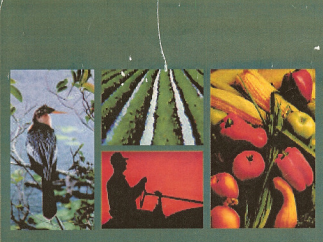News of the Palm Beach Post editorial standing up for the Ag Reserve against the various interests that would whittle it away made the rounds quickly among those working tirelessly for its future.
Please send your words of support to the Palm Beach Post for speaking up for the Ag Reserve and share it with others.
Then attend the March 24th County Commission workshop with a copy of this editorial in hand to show others who have not seen it. The Palm Beach County Board of County Commissioners (BCC) workshop will review proposals on development restrictions in the Agricultural Reserve.
Here’s what the Feb. 28, 2015, staff editorial, published in The Palm Beach Post, A16, said:
“In 1980, Palm Beach County showed rare foresight in its decision to create the Agricultural Reserve to both protect agriculture and preserve the land from over-development. Since then, the county and developers have been chipping away at the restrictions to increase density and remove parcels from the area so they can be sold and developed.
While the national image of Palm Beach County is of our wonderful beaches and expansive shopping, it is a superficial and inaccurate portrayal. The county has a long and important history in farming and agriculture. As recently as 2010-11, the county produced $1.42 billion in agricultural sales.
In fact, Palm Beach County leads the state — and all counties east of the Mississippi River — in agricultural production. It is one of the 10 largest agricultural-producing counties in the country. Along with sugar cane, our area is a leading producer of corn, peppers, rice and lettuce.
But agriculture and land preservation are under increasing pressure from development. And county commissioners, rather than continue to chip away at the 22,000-acre Agricultural Reserve, should stop yielding to this pressure long enough to at least conduct a study of the economic and environmental impact.
To be sure, a local real estate market rebound feeds a growing appetite to devour western land formerly used for farming. But people who have grown up in Palm Beach County can remember a time when you could easily drive from the coastal areas to small farms to pick or buy fresh produce directly from farmers. That is uncommon today, and hard to even imagine for many new residents.
The county’s role in agriculture is increasingly at a crossroads. That was on display at a public meeting last week, as some residents voiced their opposition to allowing increased development in the reserve. At that same meeting, other residents — comprising struggling nursery owners, farmers and other small landowners — argued that reserve rules unfairly bar them from getting top dollar for their property by limiting what can be done with that property. But as we’ve said previously, providing top dollar for farmers’ property is not the job of county taxpayers.
We agree that the burden of maintaining open areas and green space in our county should not fall on a single group. However, the agricultural character of the western regions of the county is not a new phenomenon. As such, the area has never been zoned or divided in a manner appropriate for dense development. If people purchased or inherited lands in the area under those restrictive rules, it seems at best disingenuous to claim that efforts to keep the area from over-development are an unjust surprise.
Development is not just the landowner’s issue. New homes mean less green space for residents to enjoy and less area for water storage, discharge and drainage. More development means greater demands on our infrastructure — including schools, roads, utilities, police and fire. The burden of supporting western development falls on all of our residents, not just the developers.
At the public meeting, there were proposals to add new zones for commercial development. There was also a proposal to lower the threshold on developments so that smaller parcels can to be urbanized. If these proposals are approved, the county will allow the reserve to be whittled to death.
No one can stop all development. Nor should we wish to do so. But the reserve represents not just the history of Palm Beach County, it represents our hopes for a future filled with more than just acre after acre of stoplights and strip malls. At their March 24 workshop on the Agricultural Reserve, county commissioners would be wise to remember that in 1999 taxpayers voted overwhelmingly to spend $100 million with that very thought in mind.”
Background:
The news organization’s opinion piece followed the Feb. 17, 2015, Roundtable on the Ag Reserve. The Roundtable series moderated by an outside consultant was devised by county commissioners last spring to broach the possibility of allowing more development in the Ag Reserve as a concession to developers and some farm owner interests. The idea was to bring developer G.L. Homes and farm owners looking for ways to sell their land for top development dollars to the same table with voices for protecting our environment, agricultural areas, and natural resources such as the Audubon Society. If the commissioners were hoping for an easy Kumbaya on a silver platter, the anger of citizens and the division in the room dispelled that notion.

